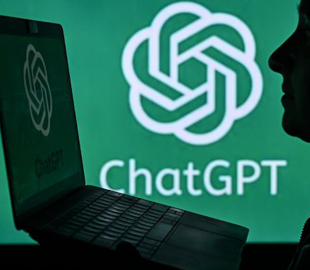
Using ChatGPT for data collection can significantly save you time. However, the accuracy and reliability of the results largely depend on the quality of the information on which the model works.
About how to force ChatGPT to give answers exclusively based on high-quality sources, RBC-Ukraine (Styler project) tells with reference to the technology website MakeUseOf.
Determining the type of source
Although ChatGPT was trained on a huge amount of data from various sources (until the moment when its knowledge base was stopped being updated), it did not actively search the Internet when answering queries. Instead, it relied on its previously accumulated knowledge, which may be outdated or incomplete.
It can now actively search the web if you tell it to, but it doesn't always do it automatically.
The first step to ensuring ChatGPT uses high-quality sources is to clearly specify the type of sources you need. You can do this by including terms such as “peer-reviewed”, “academic”, “official”, “trusted”, “government publications” or “authoritative news outlets” in your queries.
So, for example, if you want to find information about climate change, the search query “Tell me about climate change using scientific articles and peer-reviewed studies” will help ChatGPT focus on higher quality sources than it might otherwise select.
Using specific instructions
One of the unique features ChatGPT is its ability to generate links and quotes on demand. You can encourage this by directly asking for citations or sources that are recognized and credible authorities.
To ensure the reliability of the sources, you can ask the AI to base its answer on well-known scientists, scientific articles, or official reports from institutions such as the World Health Organization (WHO) and the United Nations (UN).
For example, if you want ChatGPT to provide accurate information about the theory of evolution, you can ask it to cite the works of Charles Darwin and other well-known researchers in the field of genetics, as well as provide links to the sources.
Request updates and latest data
Another useful tactic is to directly ask ChatGPT to provide the most up-to-date information it can find. By specifying a time frame, such as a specific year, you reduce the likelihood of receiving outdated or less relevant information.
ChatGPT will filter its training data to focus on the most recent and authoritative data available at the time it was trained.
For example, if you need data on climate change, instead of simply asking ChatGPT to provide you with relevant information on the topic, you can instruct it to base its results on research and reports from reputable institutions and leading universities.
Since ChatGPT has access to the Internet, he can specifically get the latest information you need.
Making your request very by being specific, you increase the likelihood that ChatGPT will generate a response that is consistent with the authoritative sources that you are looking for Essentially, his knowledge is based on authoritative scientific texts, journals, and public reports, so persistence in your inquiries increases the chances that the information will be the most recent available.
In the end, to get best results from ChatGPT, it's important to be proactive about the quality of the sources you ask for it to take into account.
And, of course , to be completely safe, never rely solely on content generated by ChatGPT. Checking with trusted platforms and using fact-checking tools or authoritative scientific databases such as Google Scholar or PubMed can help you verify the accuracy and reliability of information.

